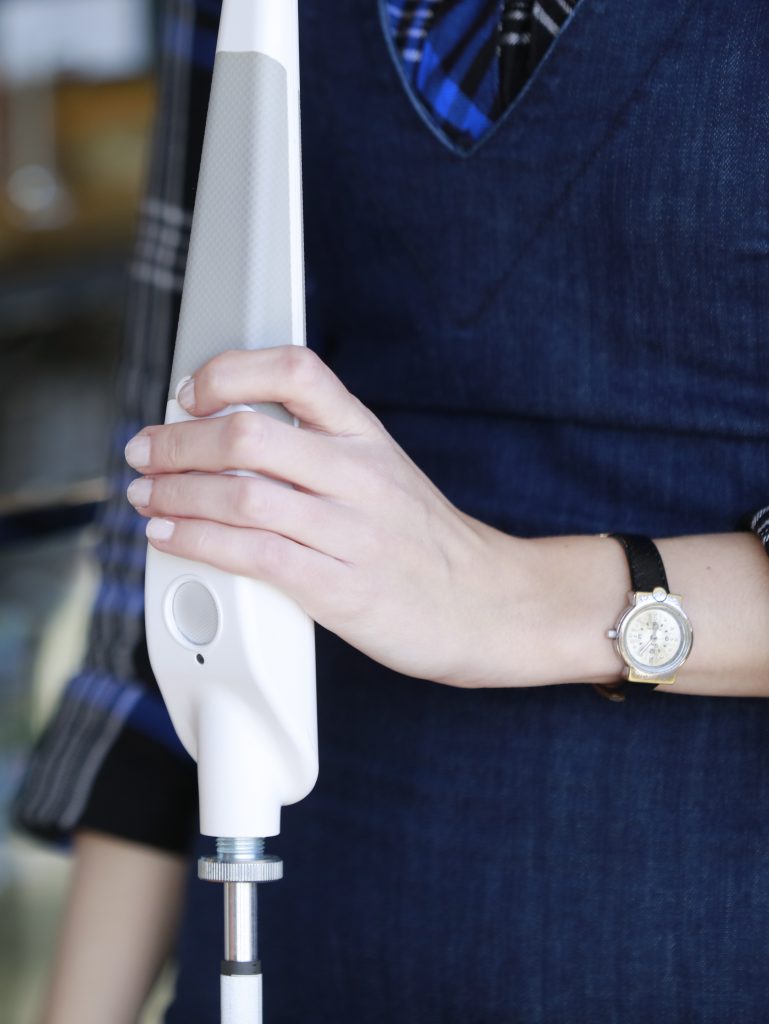A new startup, WeWalk, which recently graduated from the Microsoft for Startups program, is making waves in the assistive technology world. WeWalk has invented a product by the same name that attaches to a regular white cane that not only detects obstacles for visually impaired people but also enhances and changes the way visually impaired navigate.
WeWalk has ultrasonic sensors that can detect obstacles around a blind person, including hanging obstacles above chest level, and notifies them through vibrations and sounds. The device also connects to a person’s phone through an app (via Bluetooth) and enables step by step navigation that it speaks out loud, thanks to its integration with Google Maps and other apps. Not only that, the app can read bus timetables out loud, notifies when a bus is approaching and also instructs the bus driver to stop! The company plans to continue to add more features, including advanced voice control through future software updates.
WeWalk has a touchpad that allows a user to interact with the app through swipe and pinch gestures. Double tapping the touch pad activates the voice control. Navigating to saved locations, finding out current location, enabling and disabling obstacle detection, and even finding one’s phone can be done via gestures on the track pad. Because all the actions are done via the touchpad, the user can simply keep the phone in their pocket, and use the free hand for other things!
WeWalk came into existence as part of a hackathon two years ago. Currently, there are around 1500 WeWalk devices being used around the world. WeWalk is also talking to several not for profits, including Swiss National Association of and for the Blind(SNAB) and the Royal National Institute of Blind People (RNIB) in the UK to encourage blind users to use the device for navigation. There is a partnership with Wayfindr coming up as well to make navigation for blind people in the UK easy.
WeWalk is currently available to purchase on its website for $500. Watch the following video to learn more about WeWalk.
The playlist below shows how WeWalk works. Make sure to watch #7 in that list to see how gestures work and what they do.
Source: Good News Network, Microsoft

